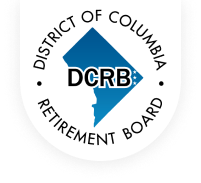Federal Employees Health Benefits (FEHB) Program
If you were hired by the District of Columbia Government in a benefits-eligible position before October 1, 1987, and you paid into the plan for five consecutive years immediately before your retirement, you are eligible to participate in the Federal Employees Health Benefits (FEHB) program sponsored by the Office of Personnel Management (OPM).
Access the Federal Employees Health Benefits Election Form Here
Refer to the Frequently Asked Questions or the brief video below for helpful information about enrolling in or making changes to your Plan. If you have any additional questions, please don't hesitate to contact DCRB Member Services or call the Member Services Center at (202) 343-3272.
Are My Family Members Covered?
- Yes, your family members can be covered under a Self and Family or Self Plus 1 enrollment. Eligible family members include:
- Your spouse (including a valid common-law marriage)
- Children under age 26, including adopted children, recognized natural children, and stepchildren (including children of same-sex domestic partners in certain states)
Foster children are also eligible if they meet these requirements:
- Under age 26 (or over 26 if incapable of self-support due to a disabling condition that began before age 26, with documentation provided to DCRB)
- Currently living with you
- The parent-child relationship is with you, not the child’s biological parent
- You are the primary source of financial support
- You expect to raise the child to adulthood
A child over age 26 who is incapable of self-support due to a mental or physical disability that existed before age 26 is also eligible. Your employing office will determine eligibility based on the child’s relationship to you.
Do I Need to Submit Proof of My Family Member’s Eligibility?
If you are enrolled in Self Plus One or Self & Family coverage, at the request of the Office of Personnel Management, you may be randomly selected to provide proof of your dependents’ eligibility.
What Do I Have to Do?
You must submit acceptable proof of eligibility for each family member within 60 calendar days of the open enrollment closing date, or they will be removed from coverage.
What Happens If I Refuse to Send the Documentation?
If you do not provide the required documentation, your family members will be deemed ineligible and removed from coverage.
Ineligible Enrollment Consequences
Any intentionally false statement or willful misrepresentation, such as including ineligible family members on your health insurance plan, is a violation of the law punishable by a fine of up to $10,000 or imprisonment for up to 5 years, or both (18 U.S.C. 1001), and may be subject to investigation.
When and How Can I Make Changes to My Coverage?
You can make changes to your coverage during the annual Federal Benefits Open Season (mid-November through mid-December). During this time, you can change plans, options, or the type of enrollment (Self Only, Self Plus One, or Self and Family). You can also make changes if you experience an FEHB-specific Qualifying Life Event (QLE), which determines the type of enrollment change permitted. If making a change during open enrollment, select “2A” as the applicable event code.
How Can I Learn More About My Options?
OPM offers a comprehensive plan comparison tool to help you explore your options. Before making your final enrollment decision, be sure to review the individual FEHB brochures, as each brochure serves as the official statement of benefits for that plan.
I have coverage with a Non-FEHB Carrier. Can I cancel my FEHB plan?
Yes, you can cancel your coverage either during the open enrollment season or within 60 days of obtaining coverage outside of the FEHB program. However, please note that if you cancel your coverage, you will not be able to re-enroll in the program.
Alternatively, you have the option to suspend your coverage. This allows you to avoid the expense of continuing to pay FEHB Program premiums while using your non-FEHB coverage, without jeopardizing your ability to return to the FEHB Program in the future.
Updated as of 11/10/2025
